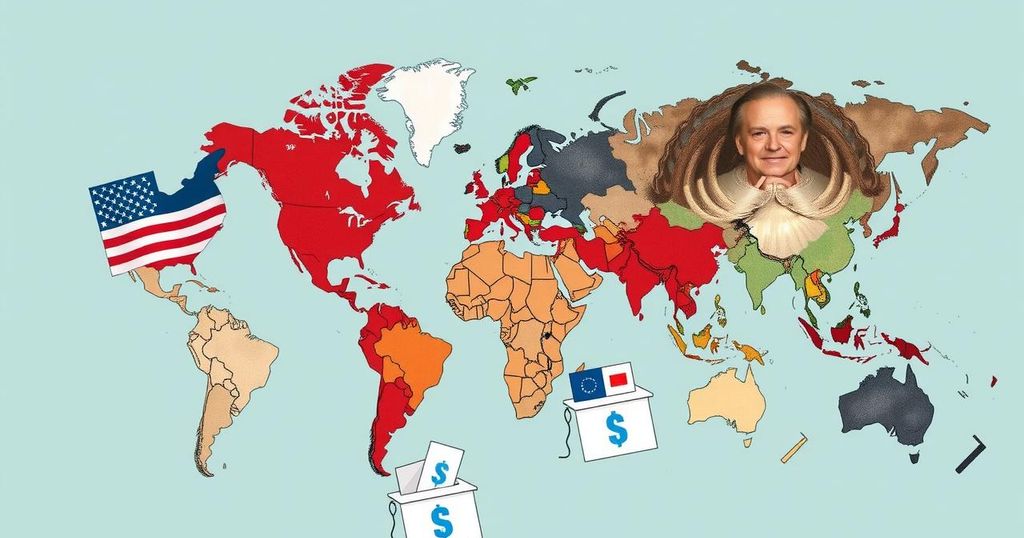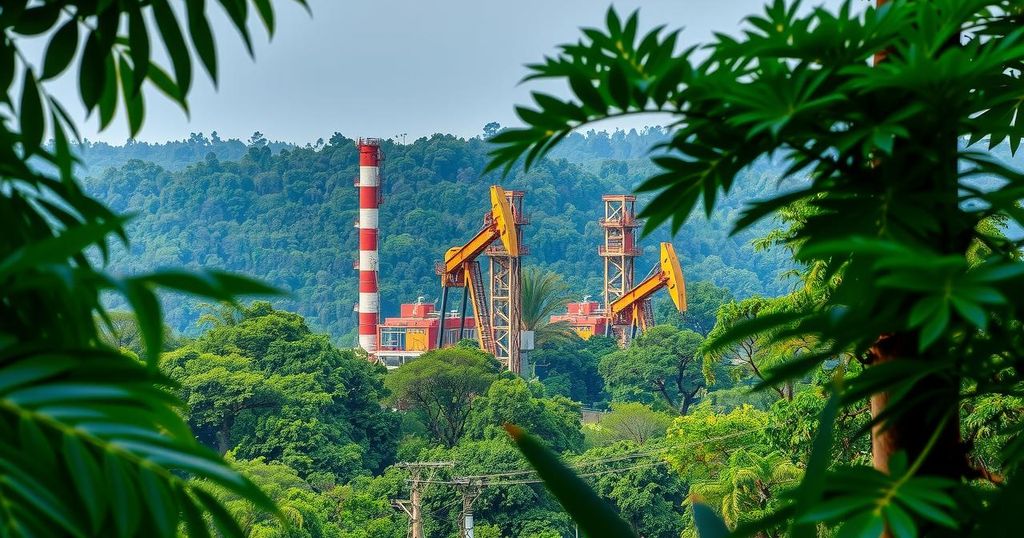2024 Elections: A Year of Political Turmoil and Anti-Incumbent Sentiment
In 2024, global elections led to major defeats for many incumbents due to economic and social dissatisfaction. Voters in key nations expressed their frustration with rising inflation and instability, favoring disruptive and far-right candidates. Notable shifts occurred in countries like India, Japan, and the UK, reflecting broader trends of political upheaval and concerns regarding election integrity.
In 2024, a significant number of nations around the world held elections, leading to a palpable shift in political landscapes characterized by an overwhelming anti-incumbent sentiment. Across approximately 70 countries, voters expressed dissatisfaction with their leaders, spurred by economic instability, high inflation, and the lingering effects of the COVID-19 pandemic. Prominent democracies such as India, Japan, and the United Kingdom witnessed substantial defeats for ruling parties, while authoritarian tendencies also emerged amid rising far-right influence in Europe and elsewhere. The year was marked by significant shifts, protests, and allegations of interference, culminating in Donald Trump’s unexpected return to the U.S. presidency—a development that has left global observers on edge.
The 2024 electoral season was unprecedented, as it not only saw the ousting of many long-standing incumbents but also revealed the rising influence of populist and far-right movements worldwide. The disruption caused by the COVID-19 pandemic, coupled with geopolitical instability stemming from conflicts such as the war in Ukraine, contributed to widespread voter dissatisfaction. As economic conditions deteriorated in many regions, particularly with rising inflation and social injustice, voters increasingly turned away from established political parties, favoring new leaders and often more radical alternatives.
As the global political landscape shifted dramatically in 2024, the trend of voters rejecting incumbents reflected deeper economic and social grievances. With the resurgence of populism and the rise of far-right parties, coupled with allegations of interference in electoral processes, the future of democracy appears uncertain. This tumultuous year is likely to set the stage for continued political volatility, as many incumbents face renewed challenges in 2025, signaling a period of significant change and potential instability.
Original Source: dailyjournal.net




Post Comment